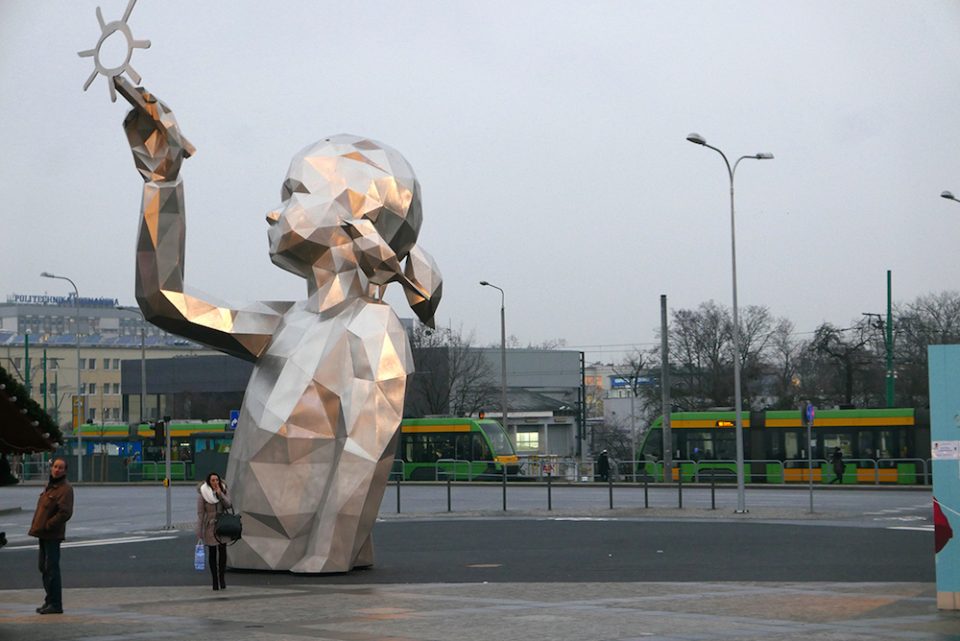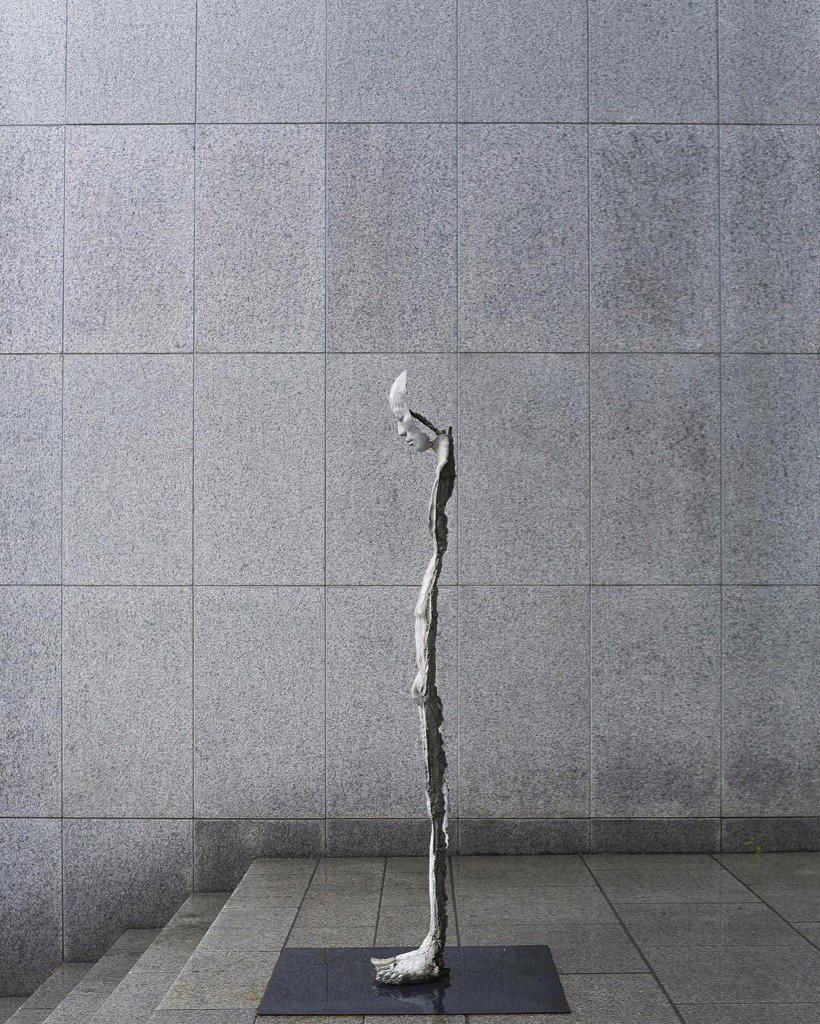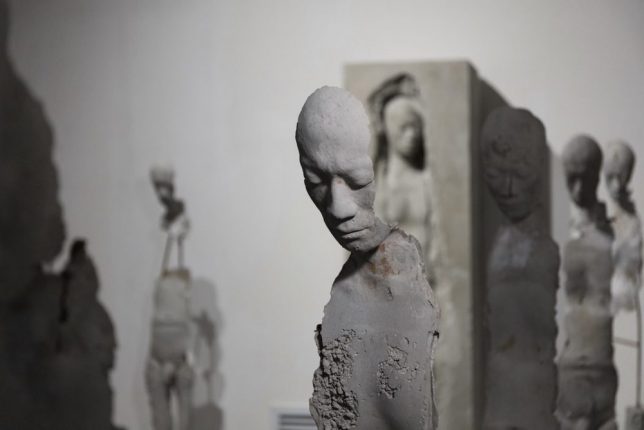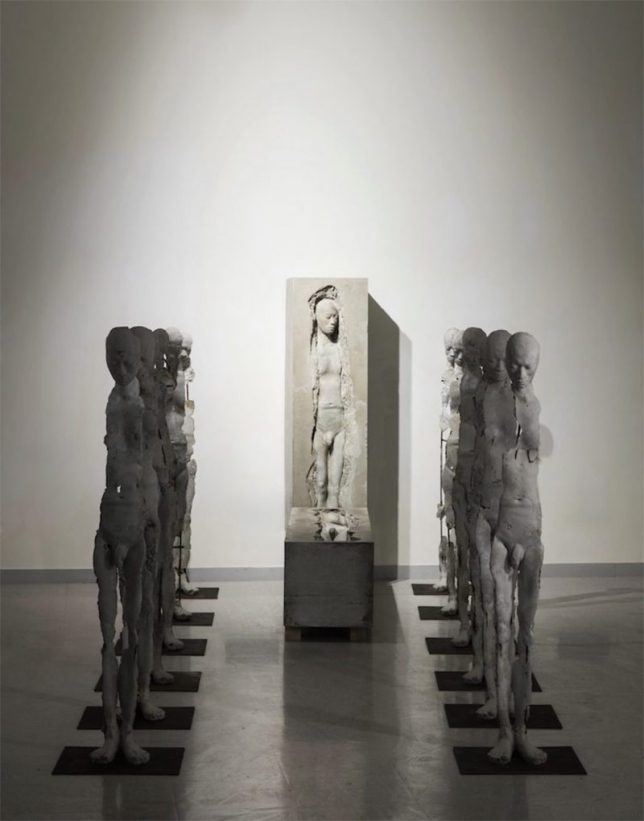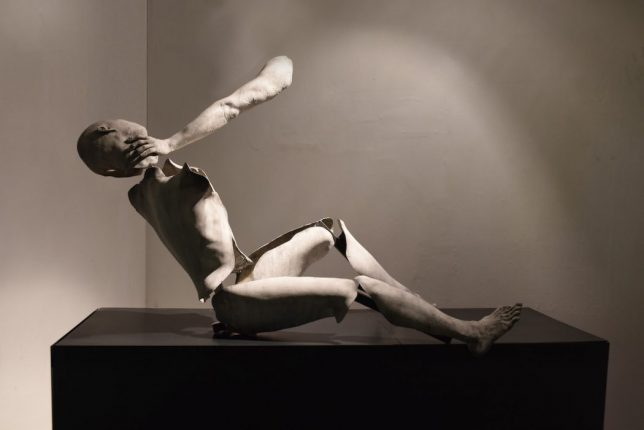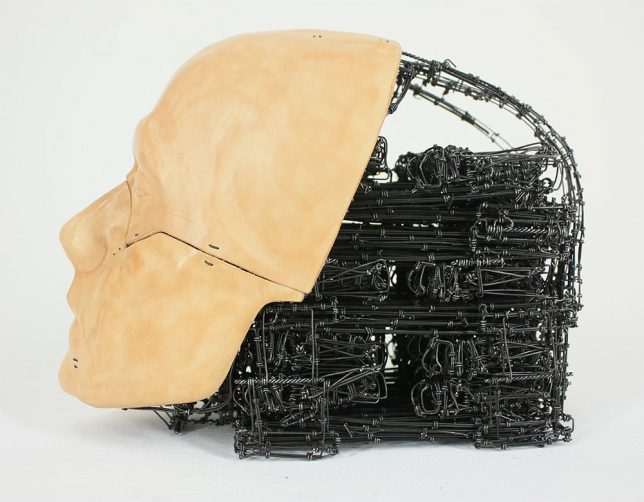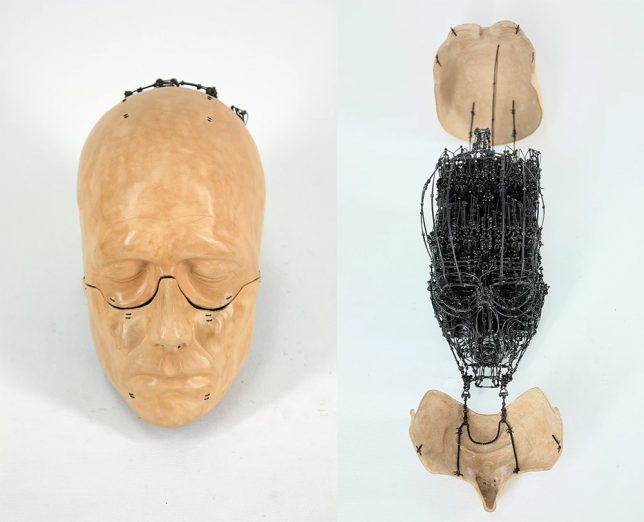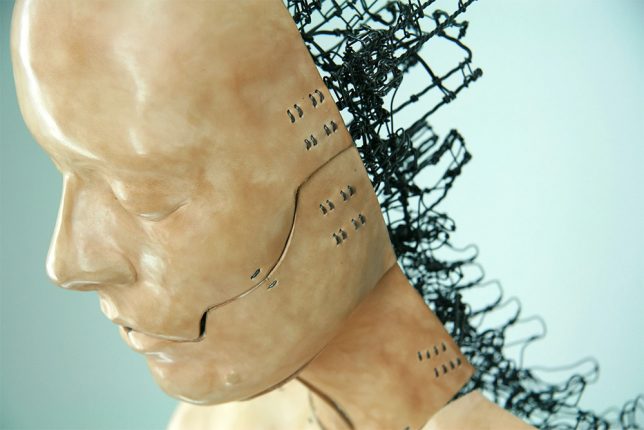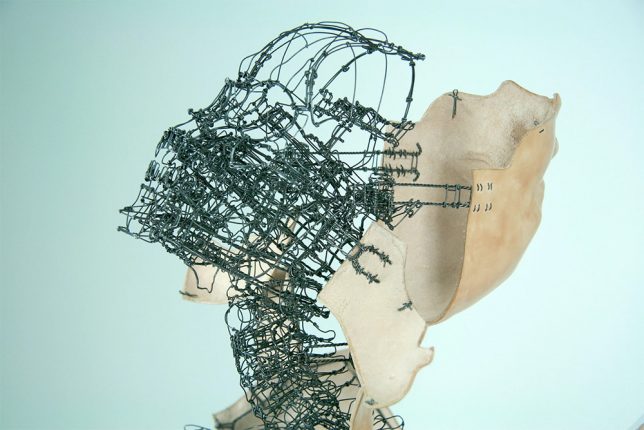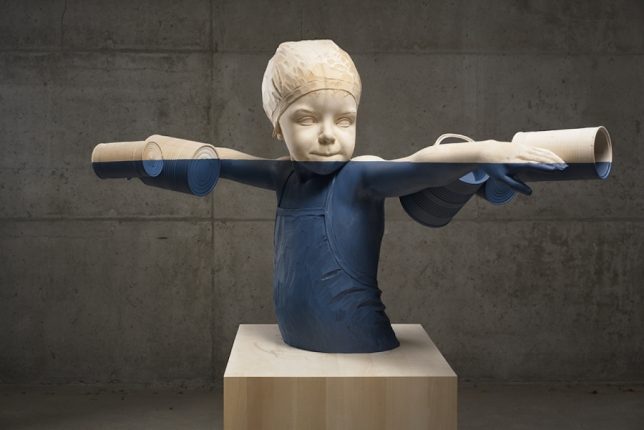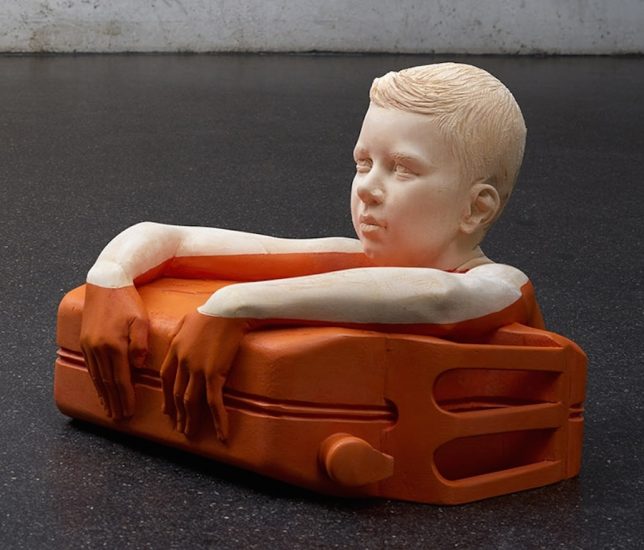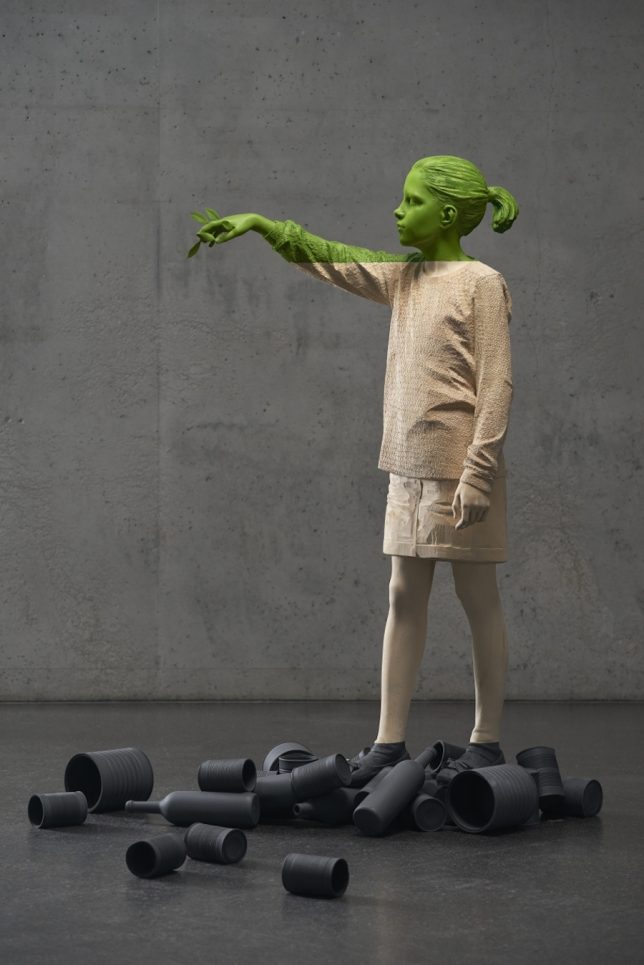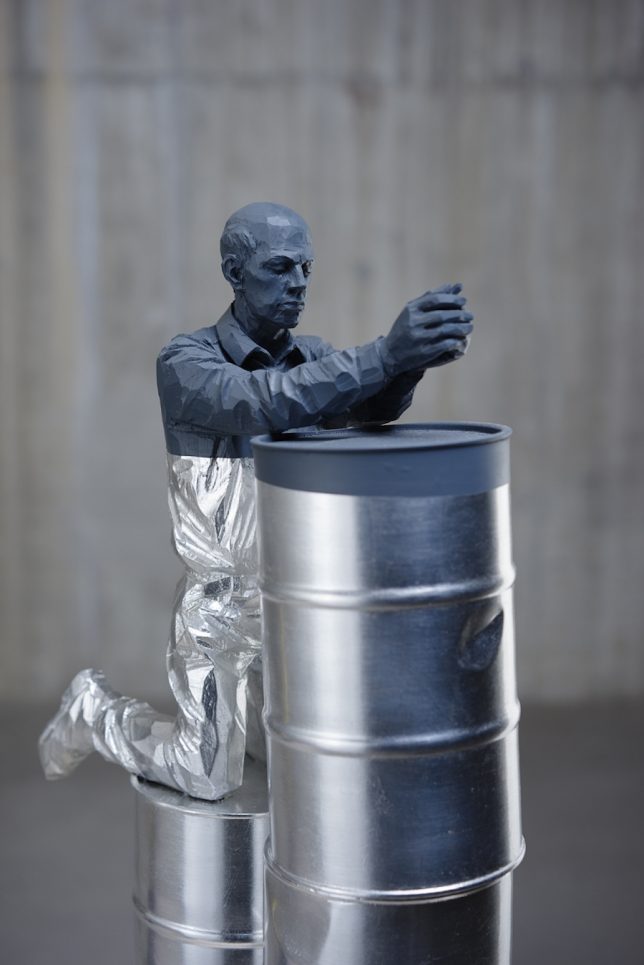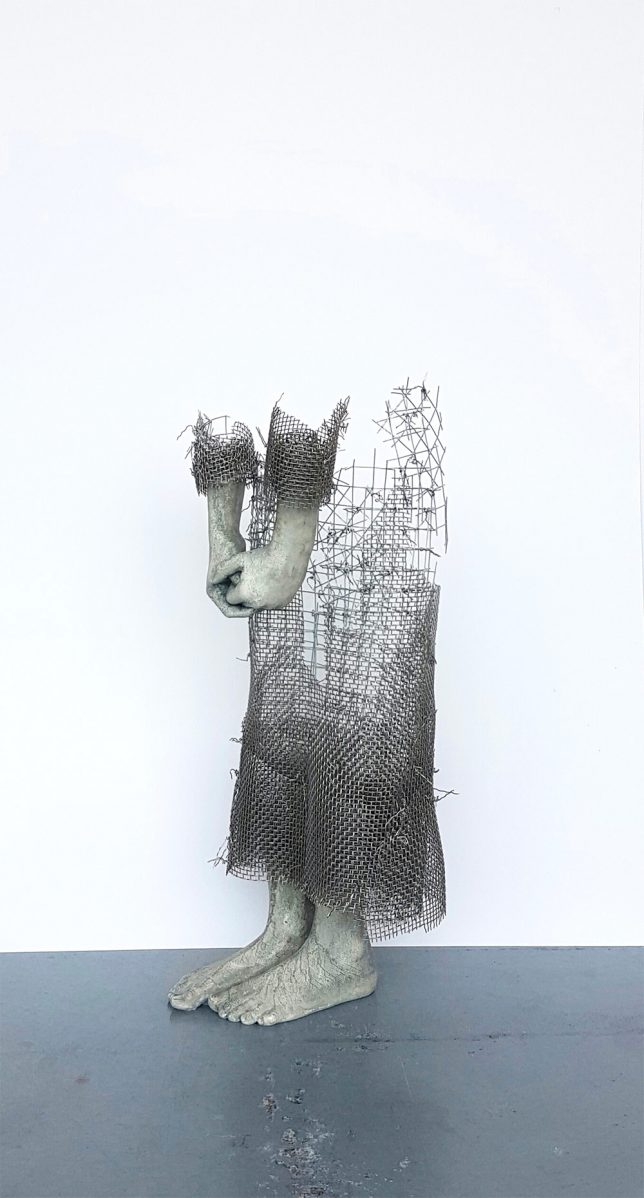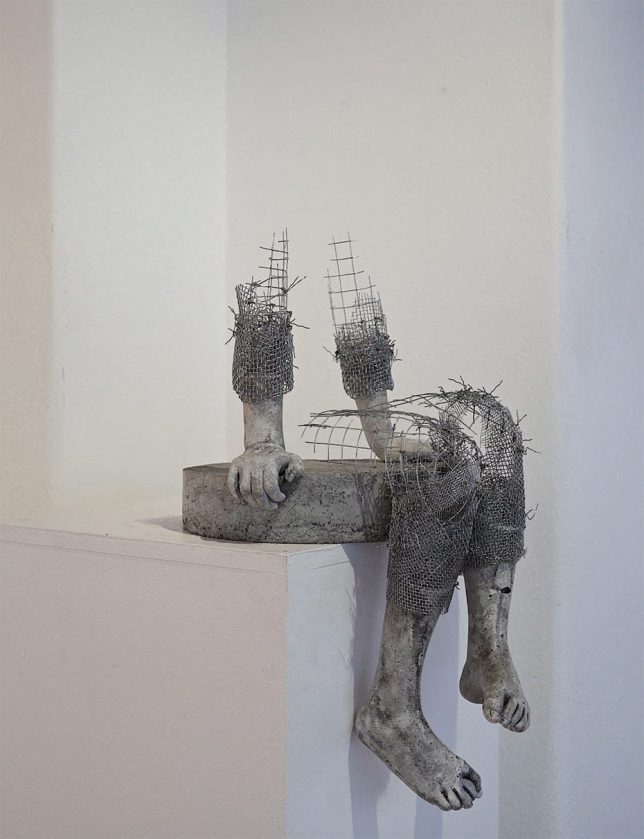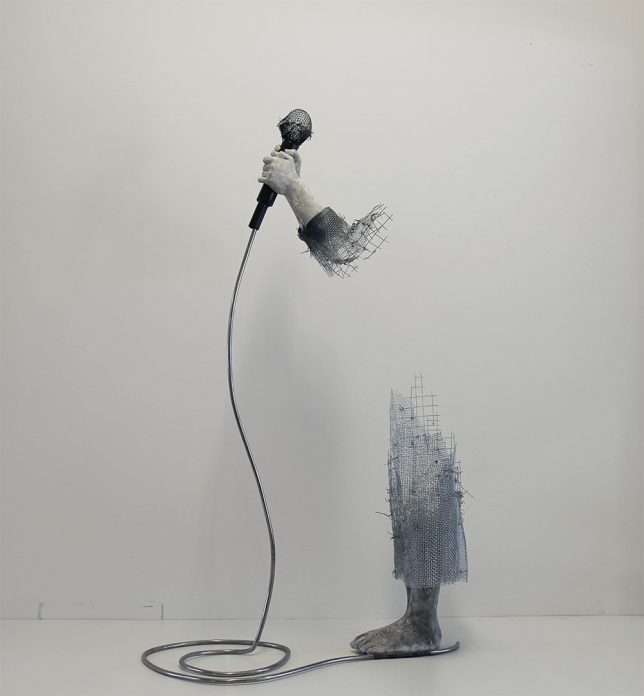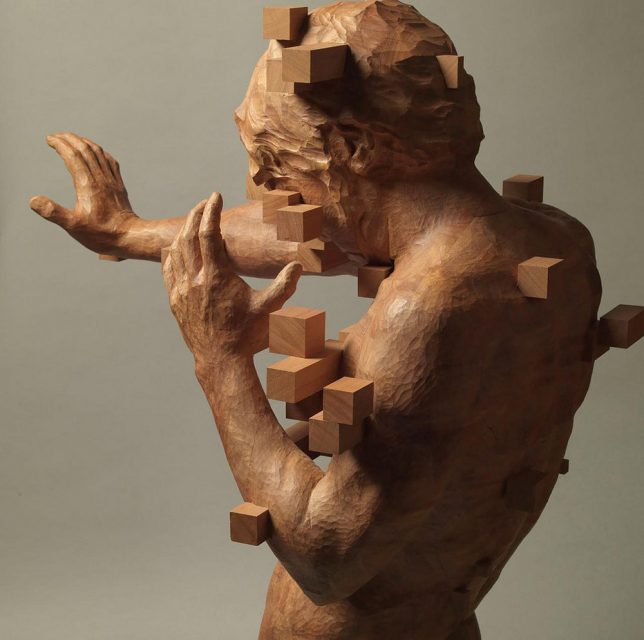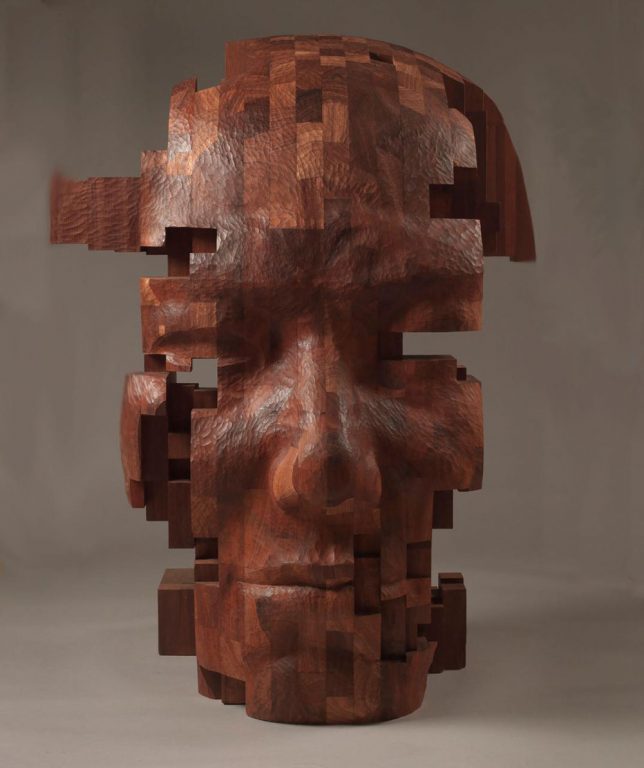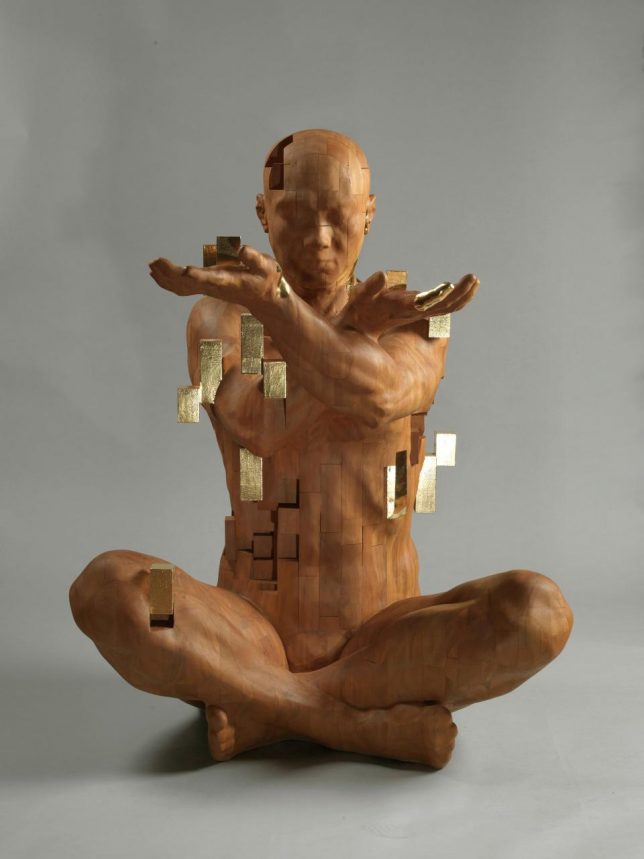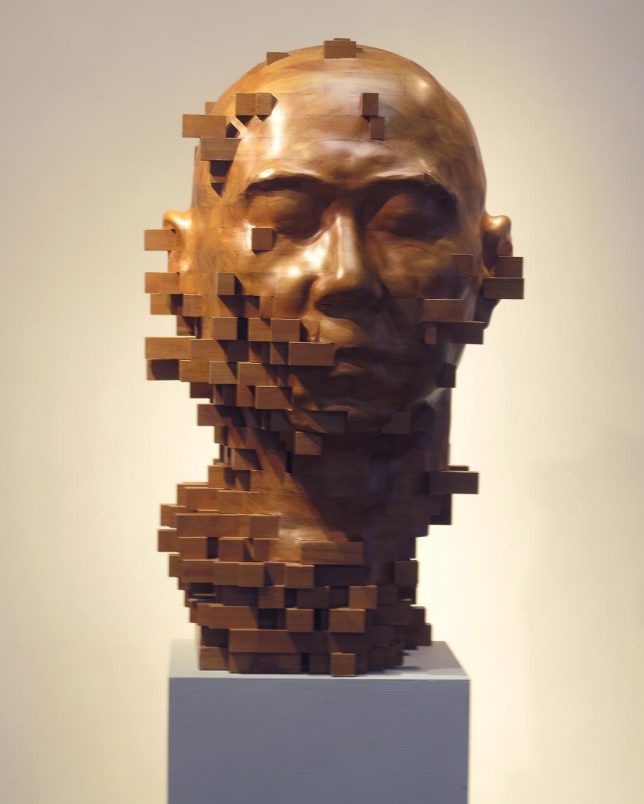Michelangelo’s David may always represent a pinnacle of artistic achievement in figurative sculpture, but modern artists are adding some brilliant 21st-century elements to the mix in the form of glitches, kinetic parts, innovative methods and materials, and context from the digital era.
Hollow Humans by Park Ki Pyung
They appear to be impossibly thin veneers of stone, but these eerie sculptures by South Korean artist Park Ki Kyung are actually resin on a steel frame. The figures appear incomplete or fractured “to describe condition of emptiness,” says the artist. “I also use shape of human body with excluded front face, so that I can delete unique characteristics of each person. I describe images of ancient battle scene to show violence against self.”
Anatomical Sculptures by Claude-Olivier Guay
Each of these paneled human heads dramatically opens to reveal a matrix of wires inside, hand-bent by artist Claude-Olivier Guay with no more than a piece of pliers. In one remarkable case, a human torso shows us its skeletal framework, but what’s inside isn’t what it seems: the wire bends itself into an animal shape and gets down on all fours before transforming back into human form.
Wood Sculptures by Willy Verginer
A child clutches a leaking gas can, families swim in tainted water and men pray over barrels of oil in this series by Italian sculptor Willy Verginer highlighting environmental degradation. The sculptures are made of wood and minimally painted for a graphic appearance.
Dissolving Children by Lene Kilde
Limbs are often all that remain of children that have otherwise disappeared in the minimalist wire mesh sculptures of Norwegian artist Lene Kilde. Though the works may appear haunting and even mournful, the artist intends for the blank spaces to be filled in by the viewer’s mind, perhaps with their own images or memories.
Pixelated Wood by Hsu Tung Han
Bodies in motion seem to be dissolving into pixels before our eyes, embodying a clash between the digital and the analog. Artist Hsu Tung Han crafts walnut, teak or African wax wood into human figures interspersed wit blocks. In this case, the glitch effect feels less about corrupted data and more about existential and spiritual matters, as if the figures aren’t entirely tethered to the physical plane.
